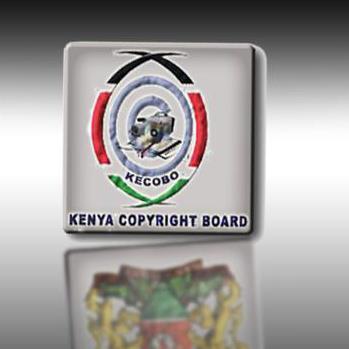The Past 10 Years: Kenya's Copyright Office Turns One Decade Old This Month
- Victor Nzomo |
- July 10, 2013 |
- CIPIT Insights

On the 21st July 2003, the then Honourable Attorney General of the Republic of Kenya, S. Amos Wako, SC officially launched the Kenya Copyright Board (KECOBO) at the State Law Office in Nairobi. In his speech, he expressed optimism that the launch of KECOBO marked the beginning of a new era for the copyright industry in Kenya. This optimism was of course tempered by his acceptance that there continued to exist numerous challenges in the copyright industry with adverse effects on copyright owners countrywide.
The first challenge cited was the issue of piracy. It was noted that piracy has resulted in several prominent recording artistes and performers dying poor while their music dominates the airwaves both locally and internationally. In addition, it was noted that piracy resulted in wood carvers and other finer artists having their works misappropriated and sold overseas at abnormal profits with no compensation to these original creators. Furthermore, local authors and book publishers found it difficult to keep afloat as there was an influx of pirated books manufactured in the back streets of Nairobi and elsewhere throughout the country. At the time of KECOBO’s launch, software piracy levels were at 78%, which was considered a serious issue not only because Kenya was losing billions in unpaid taxes but because of the link between piracy and other international crime such as drug trafficking and illegal trade in firearms.
With regard to this challenge of fighting piracy, it was recognised that KECOBO joins a growing list of enforcement agencies such as the Customs Department of the Kenya Revenue Authority, the Kenya Police, the Weights and Measures Department of the Kenya Bureau of Standards who were all on the spot for their lack of efficiency and effectiveness with regards to curbing copyright piracy.
In the case of KECOBO, it was noted that prior to 2003, the Copyright Office was a small section within the Department of the Registrar General and lacked personnel and other resources to ensure the proper administration of copyright and related rights through public awareness campaigns and training of key agencies and other enforcement bodies.
Connected to the challenge of fighting piracy was the issue of the administration of the Anti-Piracy Security Device (APSD) introduced in the 2001 Copyright Act which replaced the previous Act, CAP 130 of the Laws of Kenya. The APSD would be affixed to all genuine audio and audio-visual works in Kenya and would serve as an identification of legitimate works. The administration of the APSD would also facilitate a comprehensive database of all copyright works in Kenya that would be used both by the Government and the stakeholders in the copyright industry.
Another herculean challenge cited during KECOBO’s launch was the organisation of the music industry in Kenya, which was riddled with disagreements and controversies. It was noted that although the Music Copyright Society of Kenya (MCSK) had been in existence for the past 24 years as the sole collecting society, the latter was characterised by constant wrangles and non-payment of royalties. Therefore at KECOBO’s launch, it was stated that the Board must exercise its function of licensing and supervising the activities of collecting societies in order to intervene and put the music industry in order.
All the above was 10 years ago. This month, this blog will publish a series of articles examining just how far KECOBO has come from its humble beginnings in 2003 as well as looking forward to KECOBO’s next 10 years.
This blogger would like to hear from you, the readers, on KECOBO’s scorecard in addressing the challenges identified 10 years ago, namely the 1) fighting piracy and 2) regulation of collecting societies.
Please send your comments, thoughts and contributions in the comments box below, or through the twitter hashtag: #KECOBOat10 or by email!
